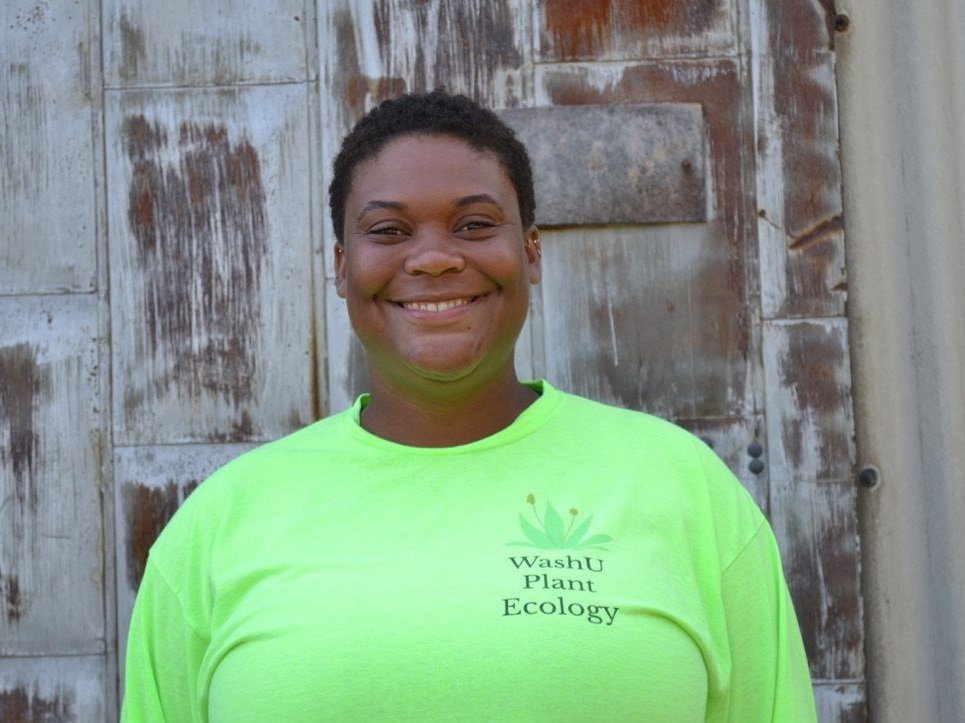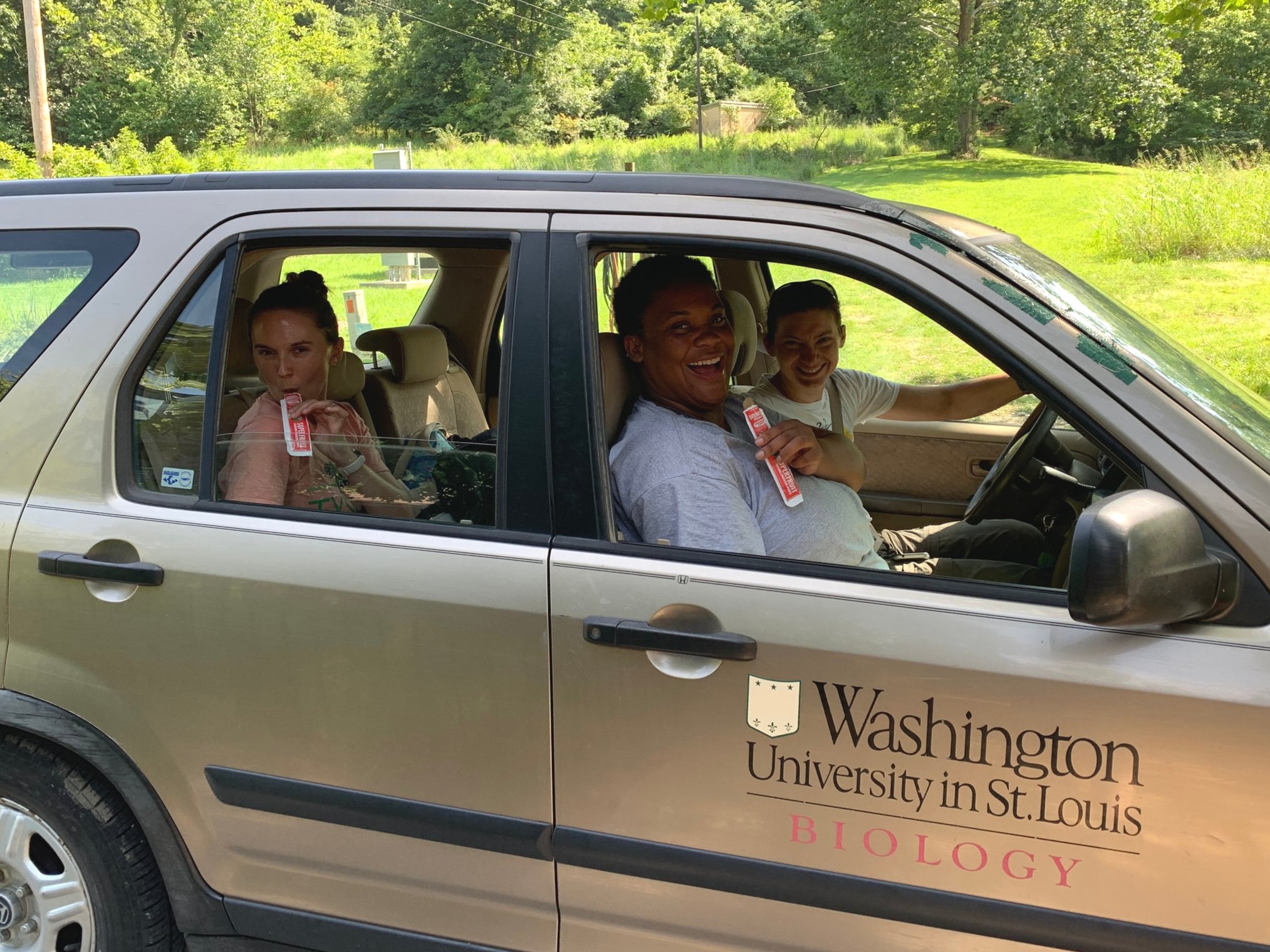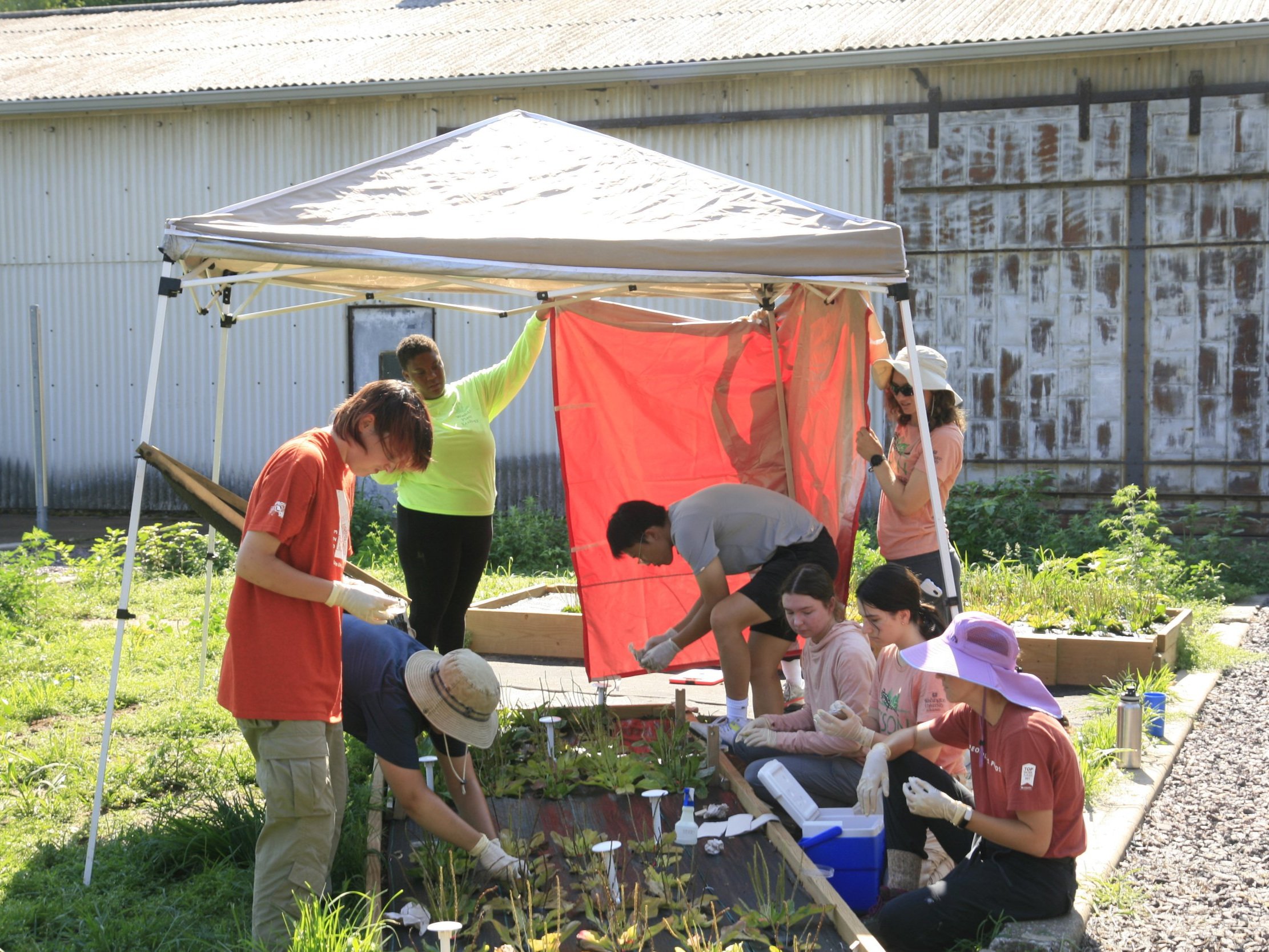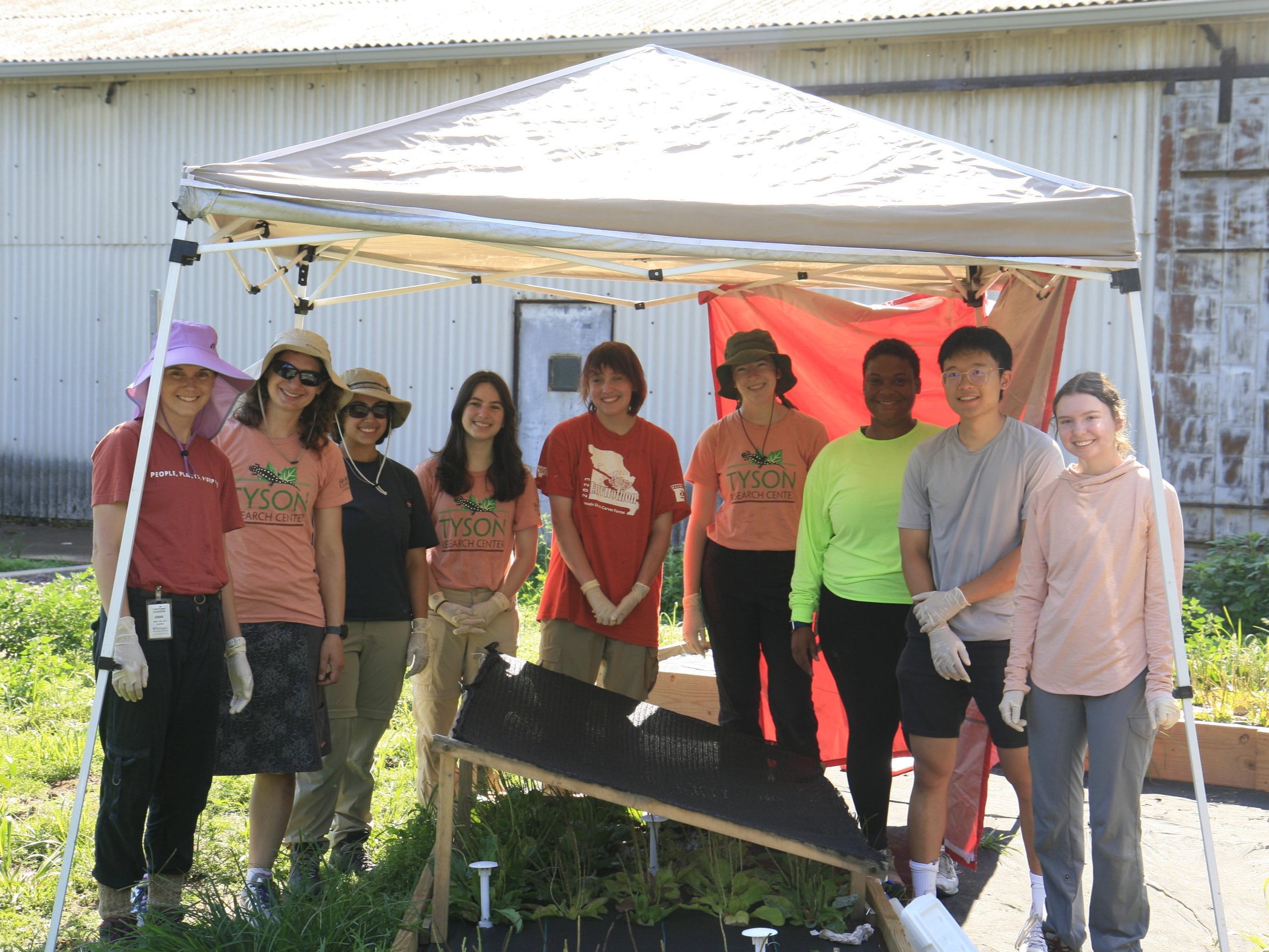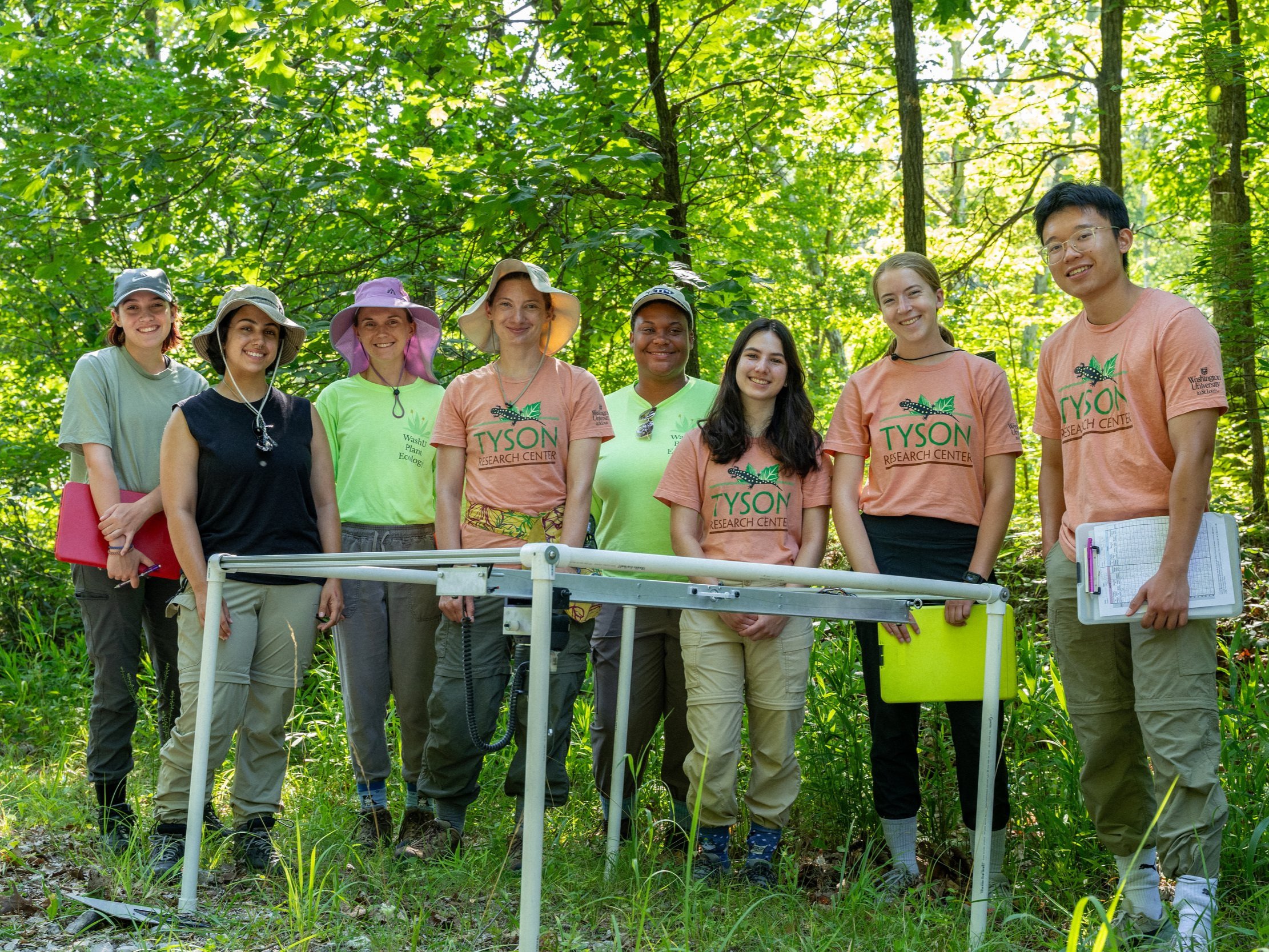Humans of Tyson 2023
Kaylee Arnold
she/her
Living Earth Collaborative Biodiversity Postdoctoral Fellow
Plant Disease Team
How did you get here? What brought you to Tyson?
Becoming a postdoc in Rachel [Penczykowski]’s lab, working with her brought me to Tyson. Super fortunately, I met Rachel via Twitter. I don't tweet a ton, but during 2020, there was a whole Twitter movement, Black scientists tweeting about both their experiences being scientists, but then also talking about their research. I was a part of this group called Black in Microbiology on Twitter and I was tweeting about doing microbiome work and my PhD work. Rachel followed me and reached out and told me about the Living Earth Collaborative postdoc position. We wrote a proposal app together, and then here I am.
Tell me a bit more about your PhD work.
I worked on kissing bugs in Panama. I was looking at the gut bacteria of these insects that spread a parasite that causes Chagas disease. The species I studied live in palm trees in Panama. We were looking across deforestation, as trees are getting cut down, does that have an effect on the population of the bugs, their ability to bite humans and spread the parasite? It was a really cool time. I got to do field work, I got to do lab work, and then I started learning bioinformatics. So lots of computer work, which I'm hoping to do a lot of similar work on the plants here. That was a big thing with Rachel and I connecting. I could still do similar stuff in a new system. Also, plants are so much easier to sample. These plants in urban spaces are a bit more suited to me. I’m not the most outdoorsy person. I'm super fortunate that I had that experience there and that I'm able to do a lot of the same work that I'm interested in here.
“I think here, the fact that I’m meeting so many folks doing completely different stuff is really cool. It definitely makes coming to work just feel so different, in such a good way.”
How is Tyson different from other research experiences?
As an undergrad I worked on marine mammal stuff and there were five of us in the lab working together. We got really close, but we didn't meet anyone else, even in the community, so we were really isolated. And for my PhD work, I was affiliated with [the] Smithsonian [Institution] in Panama, but still it was mostly me, my lab mate, and a few of the Panamanians we were working with. They had their own life, right, so there wasn't a community feel. I think here, the fact that I'm meeting so many folks doing completely different stuff is really cool. It definitely makes coming to work just feel so different, in such a good way.
What do you like about running a team?
I'm still in such a learning point. In my PhD program, I didn't work with too many undergrads, mostly because my advisor was in the vet school, so there weren’t many undergrads around at all. I'm kinda learning on the spot, but learning different ways of communicating and trying to figure out how to relay the information I have to different undergrads. And that's been great. I think it's cool to run a team as there are so many different perspectives. All the fellows have all their own ideas and backgrounds. It’s really cool to see how these big ideas that we came in with are branching off.
Where do you see yourself going from here? How might Tyson inform your future work?
That is a very good question. I'm on a two-year fellowship, so it's still pending what's after. I would like to stay in St. Louis, at least a little bit longer. And I would love if I worked for MoBot [Missouri Botanical Garden] or the [Saint Louis] Zoo, or even if somehow a Tyson position opened up. I would not be mad. I guess I’m just hoping to become a staff researcher in some type of permanent or semi-permanent job in St. Louis. And I love the community here.

